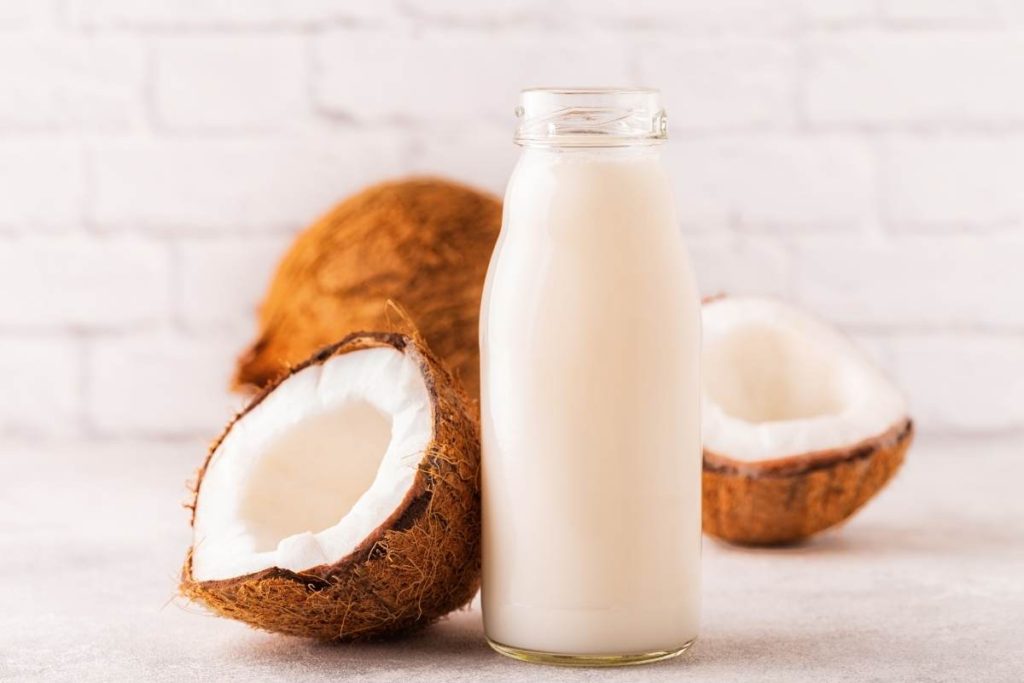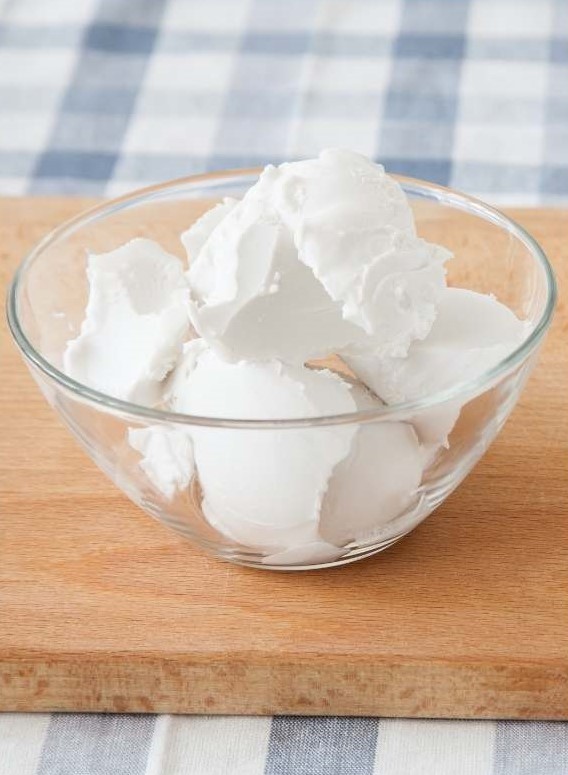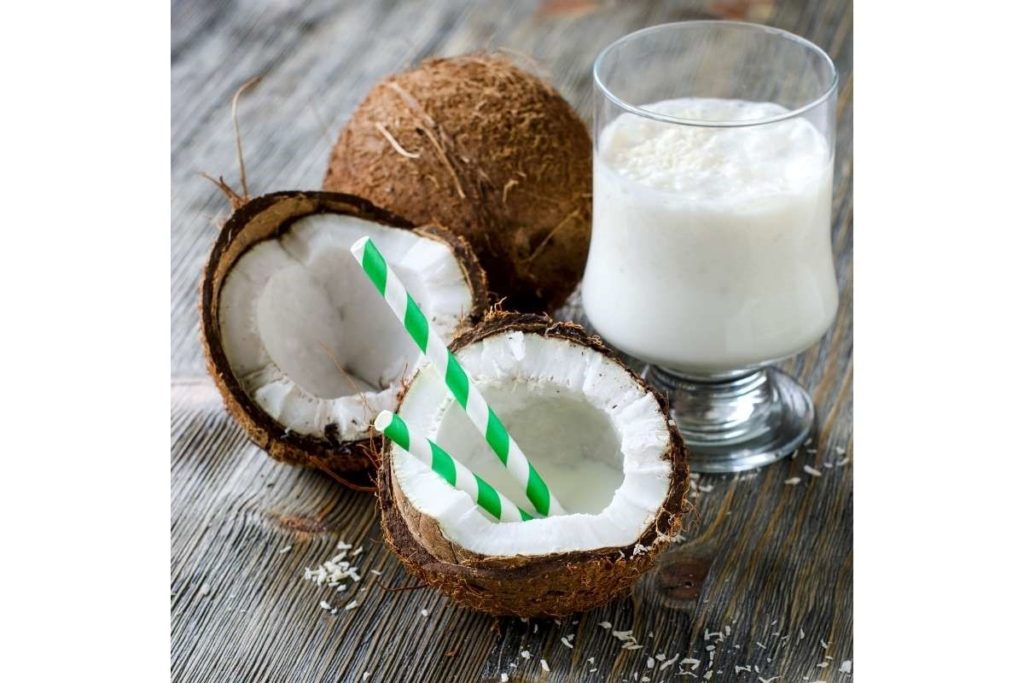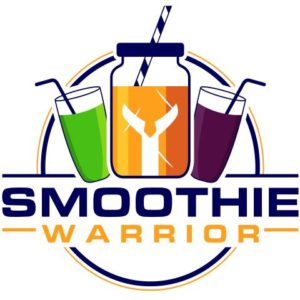
Coconut milk is an excellent liquid base for most smoothies. Coconut milk is a great substitute for any liquid including dairy milk, water, and fruit juices in smoothies. Coconut milk is chock full of vitamins and minerals making it a great healthy choice to have in your regular smoothies.
Coconut milk is a favorite liquid of mine to form the liquid base layer in my smoothies. Coconut milk is slightly creamy with a hint of sweetness that blends very well. There are many different types of coconut milk and they vary primarily based on fat content. Read on to learn which is best and how to use it in your smoothies.
How is coconut milk made?
Coconut milk is made similarly to how dairy milk is made. Inside of a coconut is a layer of white fruit flesh. Coconuts are hollow inside and in between the white flesh is a liquid and this is where coconut water comes from. To make coconut milk the processed white flesh is soaked with water and over time the cream of the coconut rises to the top. The cream is skimmed off and used in other coconut milk products like curries. The liquid below the cream is filtered and further processed to a level where it becomes the final coconut milk product used in smoothies.
What types of coconut milk are there?
Surprisingly there are many different forms of coconut milk and they vary by the amount of fat content. Here are some of the different types you will find in grocery stores:

Coconut Cream: This is usually the highest fat content and is characterized by a thick cream and is often sold in a can. Coconut cream is usually used in cooking. This is the part that is skimmed off the top when making coconut milk.
Coconut Milk: Coconut milk is lighter and thinner than Coconut cream. It is often sold in cans and used for cooking. Coconut milk can vary but usually has a maximum fat content of 20%
Cream of Coconut: Cream of Coconut is another product similar to coconut milk that has been processed to make it very sweet. This is typically used in dessert dishes.
Coconut Water: Coconut water is a separate product from coconut milk that is often confused with coconut milk. Coconuts are hollow in the center and that is where coconut water resides. There is usually more coconut water in young coconuts and more coconut flesh used to make coconut milk in more mature coconuts. Coconut water is another great product to use in smoothies and I will address it in a future article.
Coconut Milk Beverage: Coconut milk beverage is a product that is meant to be a substitute for dairy milk. These are different from the previous coconut milk but are often labeled as coconut milk in the store. These are the products that are primarily used as the liquid base in smoothies and what I use in my smoothies. My favorite is a brand called So Delicious Organic Coconut milk.
These coconut milk substitutes vary immensely in their nutritional contents, fat amounts, and coconut taste. You’ll have to find the right one for you by trying out a few brands. I like a thinner, less coconut flavor, and an unsweetened version for my smoothies. I find that profile of coconut milk works well by not overpowering other ingredients in the smoothie, especially the fruit.
For the rest of the article, I will reference coconut milk beverages as coconut milk as it is the main product to use in smoothies as a liquid bases and is often labeled as coconut milk in stores.
How to use coconut milk in smoothies

Coconut milk can be used as the primary liquid base for smoothies. In my daily morning smoothie, I use coconut milk as the only liquid in my smoothie. Depending on the size of the smoothie I’m making I’ll use 1-2 cups of coconut milk along with greens, frozen fruits, and a banana.
Another use for coconut milk can be to make a sweet fruit juice smoothie less sweet. One of my favorite smoothies uses a frozen banana, a handful or two of frozen strawberries, and orange juice. Using orange juice makes the smoothie very sweet. I’ll often use a 50:50 ratio of orange juice and coconut milk to make it less sweet or even a 75:25 coconut milk to orange juice ratio.
If using other coconut milk products like cream I like to think of it as more of an add-in rather than a liquid base. Just remember to look at the amount of fat you are adding based on the product and amount you are adding to your smoothie.
What does coconut milk taste like?
Coconut milk in general is very similar to dairy milk. Manufacturers of coconut milk have done a great job getting close to the taste and texture of dairy milk and you’d be hard-pressed to find a difference when it is added to smoothies and other dishes as a substitute.
With that said there is quite the variance in coconut products on the market these days and many have different flavor profiles from one another. Some companies now even produce flavored coconut milk with vanilla flavor being a common one. Some coconut milk has added sugar, more fat content, and some have more of a coconut taste to them. I prefer to use unsweetened coconut milk that has a lower flavor profile so that I can get flavor primarily from the greens, fruit, and other add-ins in my smoothies.
What are the nutritional facts of coconut milk?
Again this will vary highly based on the product you spring for. Some companies will fortify their product adding additional vitamins and minerals. Here are a couple of examples from two popular brands
So Delicious Unsweetened Coconut Milk
Serving Size: 1 cup
Total Fat: 4.5 g DV 6%
Saturated fat: 4 g DV 20%
Trans Fat: 0 g
Cholesterol: 0 mg
Sodium: 25 mg DV 1%
Total Carbs: 1 g DV 0%
Total Sugars < 1 g
Protein: 0 g
Vitamin D: 10% DV
Calcium: 10% DV
Iron: 0%
Potassium: 0%
Vitamin A: 15%
Vitamin B 12: 120%
Magnesium: 8%
Zinc: 6%
Selenium: 10%
Pacfic Foods Unsweetened Original Coconut Milk
Serving Size: 1 cup
Total Fat: 4 g DV 5%
Saturated fat: 4 g DV 20%
Trans Fat: 0 g
Cholesterol: 0 mg
Sodium: 70 mg DV 2%
Total Carbs: 1 g DV 0%
Total Sugars < 1 g
Protein: 0 g
Vitamin D: 10% DV
Is coconut milk healthy for you?

Coconut milk is generally a healthy alternative to dairy milk. Coconut milk has many vitamins and minerals that can help you meet your daily values. If you are a plant-based eater, some kinds of milk are even fortified with B12 one the items usually only found in meats. Most coconut milk calories come from saturated fat. It is currently unknown what role saturated fat plays in bad cholesterol levels.
Be aware of the products you purchase though as some coconut milks have added sugars that can take the milk from healthy to sugary quickly. Other products may include flavor additives that may detract from the overall healthiness of the product.
Where to buy coconut milk?
Coconut milk is very common these days and can be found in most supermarkets and definitely at various health food stores. Coconut milk can mostly be found in the refrigerated dairy section. You may also find coconut milk in unrefrigerated sections of the grocery store where it only needs to be refrigerated once opened.
My favorite place to purchase coconut milk is from Costco. I regularly buy the brand So Delicious Coconut milk from Costco. You get a 32 ounce 6 pack for a great price.
This brand is great for smoothies as it is unsweetened, USDA Organic, kosher, Certified Gluten-Free, Non-GMO project verified, and certified vegan.
